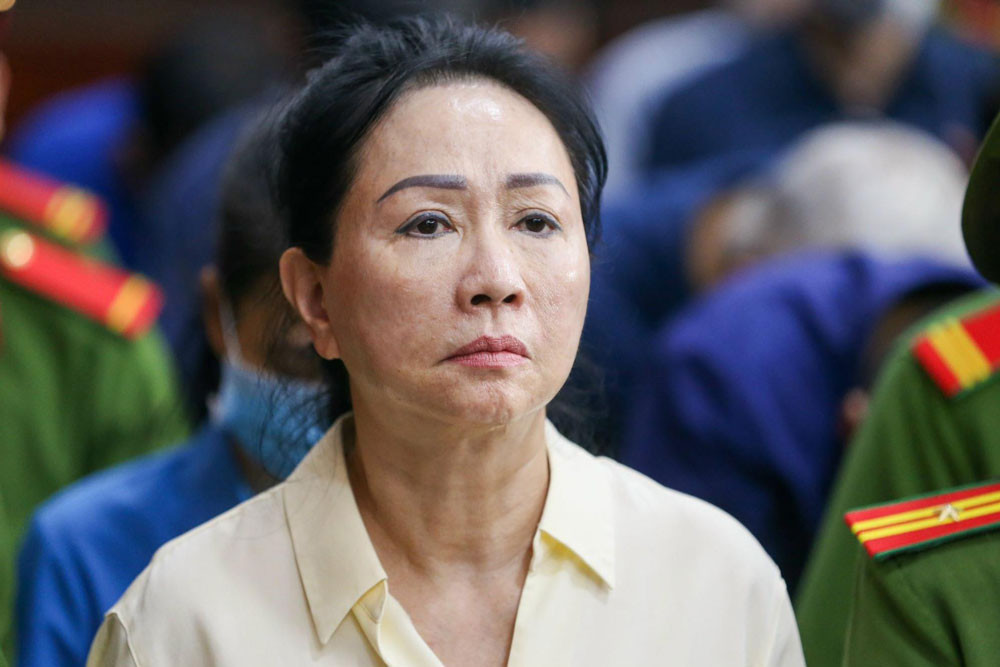
According to the investigative agency's findings, Lan, alongside other suspects, orchestrated illegal financial transactions spanning a decade, from 2012 to 2022. Twenty-one companies within the Van Thinh Phat ecosystem were implicated in these transactions, which involved the transfer of funds abroad and the reception of overseas funds into Vietnam.
The investigation revealed that under Lan's direction, individuals associated with the Van Thinh Phat Group collaborated with employees of the Saigon Joint Stock Commercial Bank (SCB) to unlawfully transfer international funds. This was accomplished through falsified invoices for various transactions such as purchases, share transfers, capital contributions, loan contracts, and consulting agreements between domestic and overseas entities.
These transactions were fabricated to provide a veneer of legitimacy to the movement of funds across borders. Legal entities associated with the Van Thinh Phat Group utilized "shell companies" to transfer and receive funds internationally.
The illicit transfer of funds and their reception in Vietnam occurred across three branches of SCB, including Saigon, Cong Quynh, and Ben Thanh.
Despite the lack of requisite documentation and procedures for international fund transfers, authorized personnel facilitated the completion of these transactions.
In total, the group executed 107 transactions transferring funds abroad and 152 transactions receiving funds from overseas into Vietnam, amounting to $4.5 billion.
Despite reports of 151 suspicious transactions, the absence of a comprehensive list of Van Thinh Phat-affiliated companies complicated investigative efforts.
Between 2012 and October 7, 2022, regulatory agencies failed to conduct audits or inspections on customers involved in these transactions.
As per regulations, the Anti-Money Laundering Bureau, overseen by the State Bank Supervisory Inspection Agency, is responsible for receiving reports and information related to money laundering and terrorism financing.
However, prior to the case's initiation on October 7, 2022, companies within the Van Thinh Phat Group involved in these transactions were not subject to scrutiny or investigation.
The investigating agency highlights challenges faced due to the absence of comprehensive transaction data and urges regulatory bodies to propose amendments to enhance oversight and enforcement in international fund transfers.
Another competent authority, the Foreign Exchange Management Department under the State Bank of Vietnam, does not have the function of checking and inspecting foreign exchange activities of individuals and organizations in general, as well as money transfer activities abroad and receiving money to Vietnam in particular.
The Foreign Exchange Management Department only collects and monitors data based on the aggregated reports of banks without specific transaction data for each organization or individual. In the process of monitoring aggregated data provided by SCB, this agency has no basis to detect abnormalities in money transfer and receipt abroad.
Therefore, the Investigation Agency believes that there is no basis to consider the responsibility of the Anti-Money Laundering Department and the Foreign Exchange Management Department in the cases where the subjects and companies under Van Thinh Phat and SCB violated regulations on international money transfer.
The Investigation Agency recommends that the State Bankd of Vietnam, the Banking Inspection and Supervision Agency, and competent authorities advise on amending and supplementing legal regulations in the field of international money transfer, ensuring strict conditions for money transfer, and taking measures to inspect and supervise credit institutions performing international money transfer functions.
T. Nhung